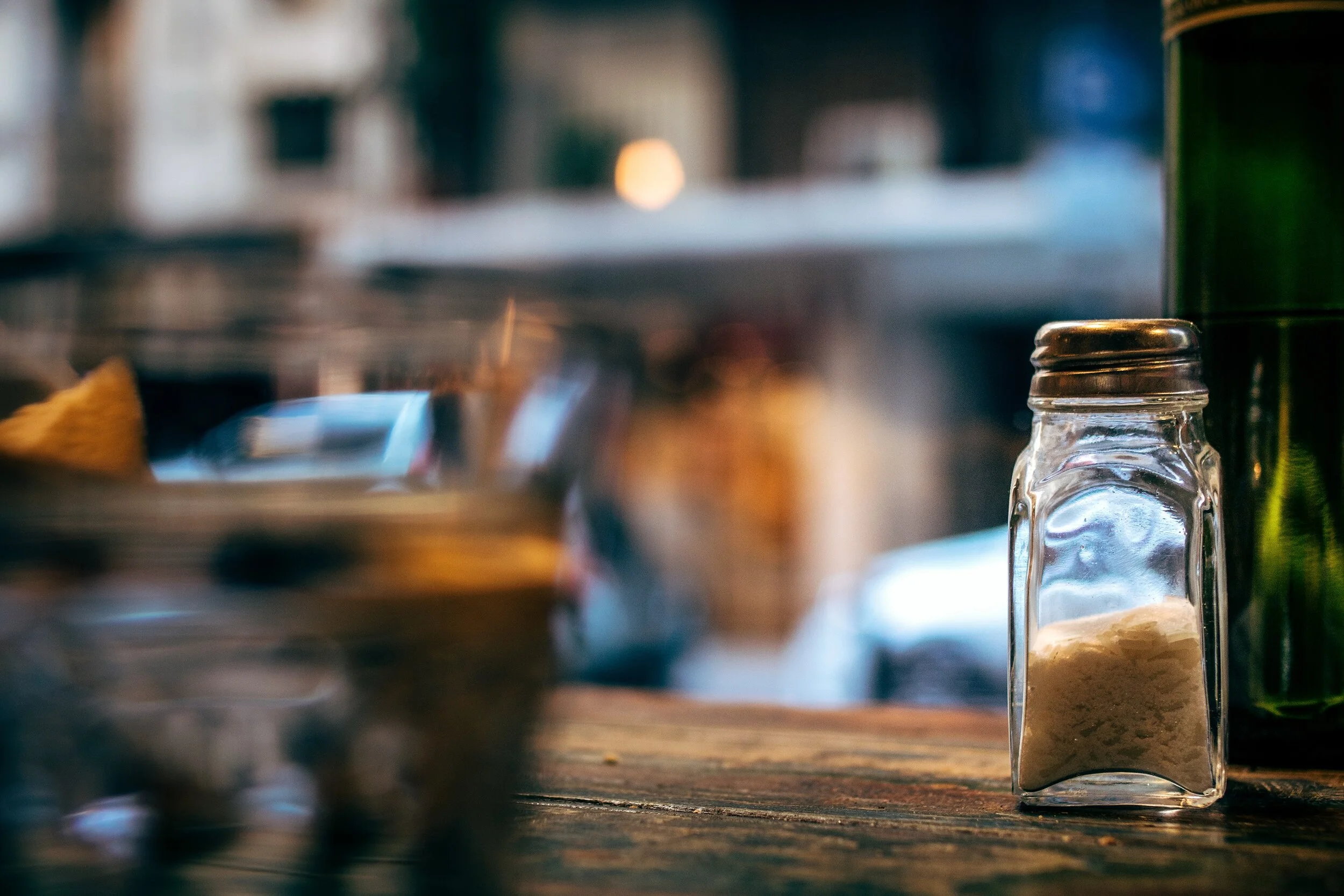We all need a little salt in our diets. Sodium and chloride are essential nutrients. However, we get all the salt we need naturally in the foods we eat. There isn’t any reason to add more salt when cooking or at the table.
When you have more salt than you need, you retain water in your tissues. The minerals in salt, combined with the water retention, raise your blood pressure. Even if you don’t retain water in your tissues, it’s known that salt has a definite adverse effect on your arteries. These physical reactions are most pronounced as you get older, but the habits established in childhood influence the rest of your life!
Unfortunately, we eat way too much salt. Processed foods have incredibly high sodium levels to mask the fact we’ve processed all the flavor out of the things we package. Fast food restaurants may give you double the daily recommended requirement of salt in just one order of a burger and fries or chicken nuggets. Chinese and Italian restaurants are no better according to reports from the Center for Science in the Public Interest in 1993 and 1994.
At home, read the labels on the food you serve your children, and you’ll find that breakfast cereals may have as much sodium, ounce for ounce, as potato chips. Cheese is very high in sodium, as are deli meats, like turkey roll, ham, or bologna. The soy sauce that is used to enhance the flavor of Oriental food is almost pure salt. When you eat two slices of take-out pizza, you use up your full daily allotment of salt.
In our home, we use lemon and/or herbs in place of salt. Our daughter doesn’t notice the difference. If your children are raised to enjoy the honest flavor of natural, unsalted foods, you’ll be helping them be healthy while you train the taste buds to enjoy unsalted foods.
